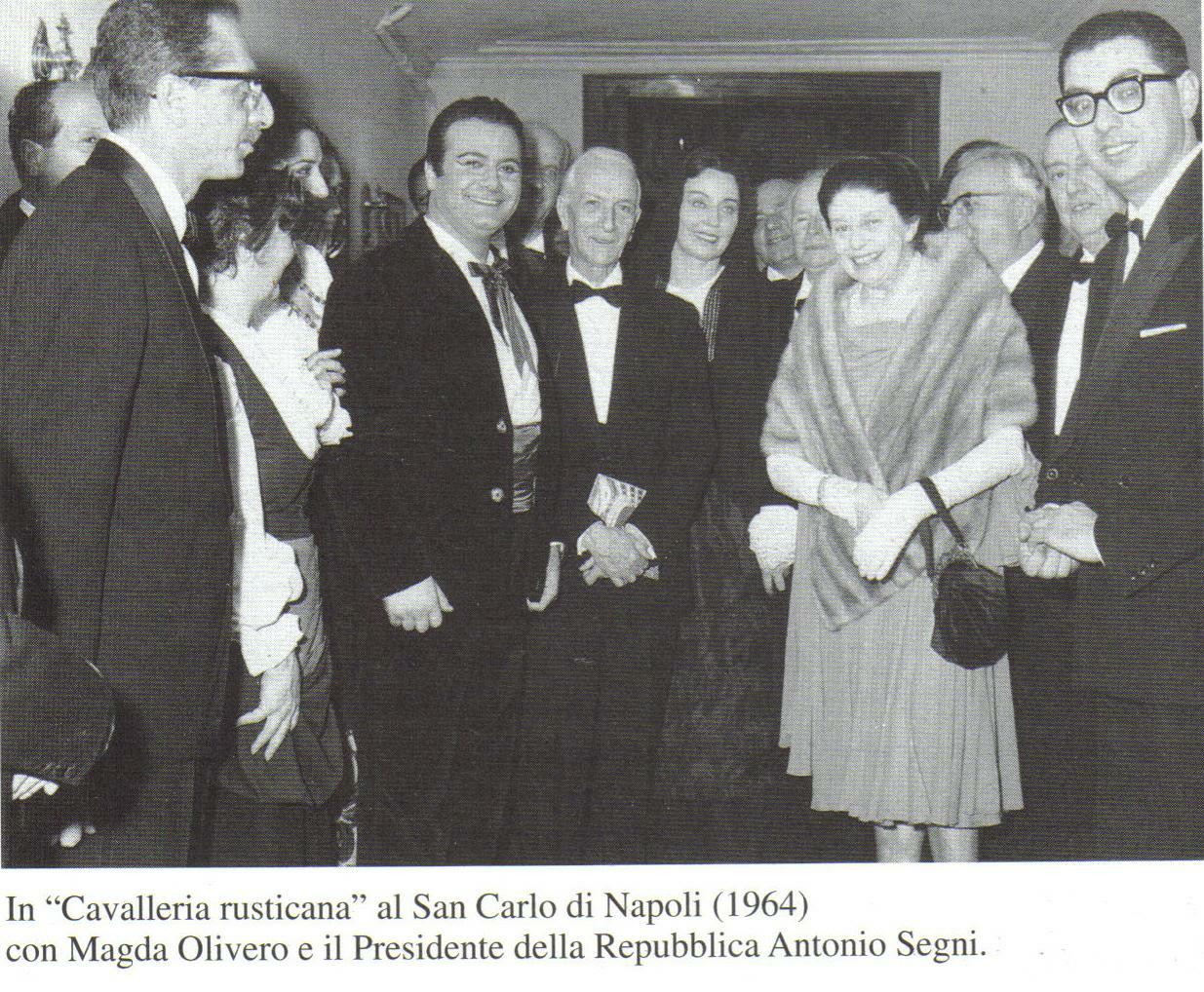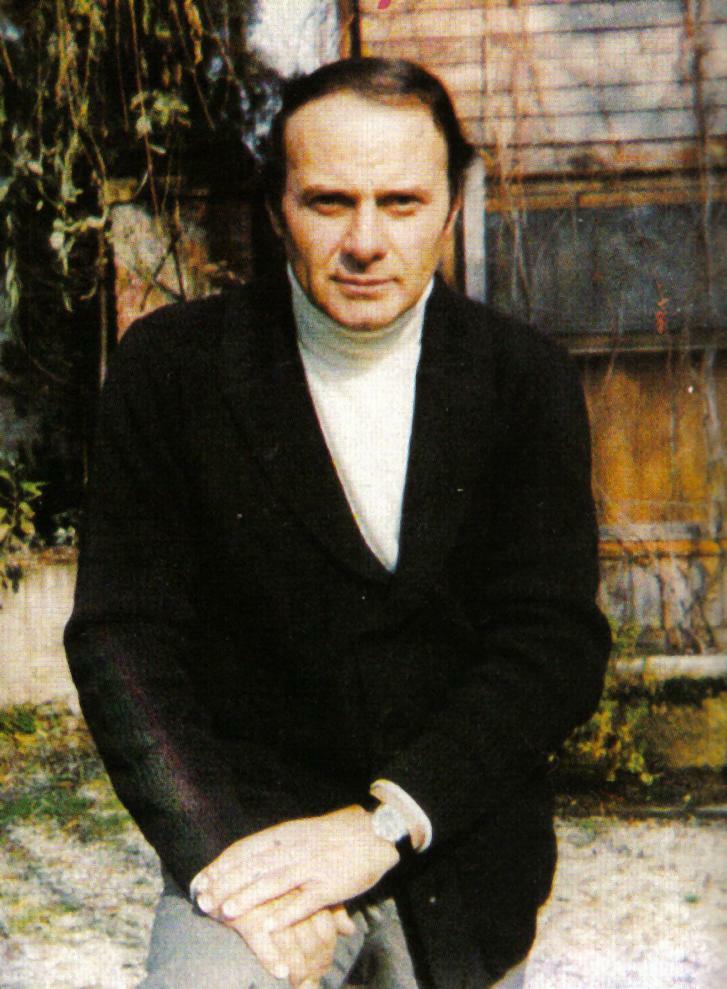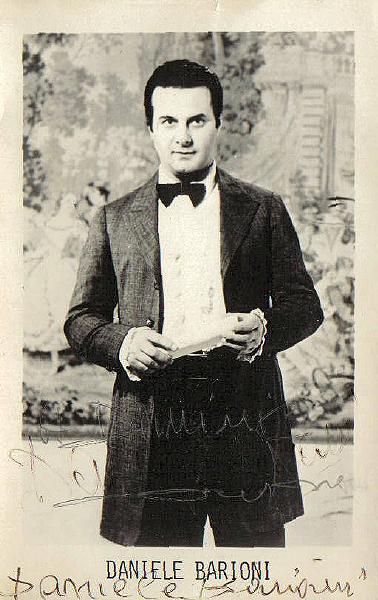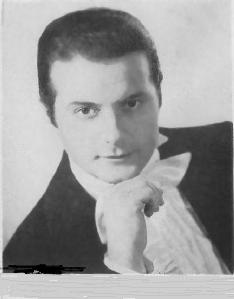Daniele Barioni
There is a funny story behind this picture. Mike Richter, an expert on Operashare, posted the Cavalleria duet between Gencer and Zambon. A member posted that it was not Gencer but Olivero. Mike Richter, the expert, said it is not possible as Olivero never sang Cavalleria. Upon being notified that a picture existed, the poster was told by Mike Richter, the expert, that it was still not possible and that he knew better.
Italian tenor born in Copparo (Ferrara) on 6 September 1930. At the beginning he studied in the baritone key, but soon his true tenor voice was discovered. He made his debut in 1949 at the Circolo Italia, in Milan, in a concert with the Chilean soprano Claudia Parada. His operatic debut was in 1954 as Turiddu in "Cavalleria rusticana" at the Teatro Nuovo, in Milan. During his first year of career he also sang in "Tosca" and "Madama Butterfly", In 1955 he sang in Egypt and South Africa, and on 20 February 1956 he made his debut at the Metropolitan Opera House in New York, in "Tosca" with Delia Rigal and George London. Next season he added "Bohème", "Madama Butterfly" and "Traviata", and in the season 1958/59 "Cavalleria rusticana" with such a success that it was taken in a tour to different cities in the USA and Canada. He sang at the Met for seven years, a total of 54 performances. His last role there was, in the 1962/63 season, the Italian tenor in "Der Rosenkavalier". Barioni on Vickers, Tucker and Peerce."Vocally, Vickers was better than Tucker. I heard him in Aida. Compared to Tucker, Vickers had a more powerful voice, Tucker was a lyric tenor. Peerce was maybe the oldest of them all. I remember when I went with Del Monaco to listen to one of his rehearsals of Tosca. When he attempted the 'Vittoria!' in act two, he sang it like sighing, very fast, and Del Monaco said to me: 'but this is a Waterloo!'."Reference: Rubboli, Daniele: Daniele Barioni - Davanti a lui tremò il Metropolitan. Bologna, Bongiovanni 1996, p. 46Tucker, "un tenore lirico" and Peerce a Waterloo, delightful.
Cavalleria rusticana – Milano, Nuovo, 21 July 1954 Tosca, Borgosesia – Sociale, 22 August 1954 Madama Butterfly – Firenze, La Pergola, 28 September 1954 La bohème – Johannesburg, ?, 17 September 1955 La traviata – New York, MET, 21 March 1957 Macbeth – New York, 2 January 1960 La rondine – Philadelphia, Academy, 25 February 1961 La fanciulla del West – Catania, Massimo, 16 March 1961 Fedora – Saint Louis, Kiel Auditorium, 19 April 1961 Turandot – Rio de Janeiro, Municipal, 5 October 1961 Andrea Chénier – S. Paulo, Municipal, 16 October 1961 Der Rosenkavalier – New York, Met, 19 November 1962 Lucia di Lammermoor – Philadelphia, Academy, 1 March 1963 La Gioconda – Mexico, Palacio de Bellas Artes, 10 October 1963 Il trovatore – Shreveport, Civic, 28 November 1963 Manon Lescaut – Cincinnati, Zoo?, 19 June 1964 Aida – Tulsa, 6 November 1964 Don Carlo – Hartford, 10 November 1965 Nabucco – orino, Regio, 11 January 1968 Rigoletto – Portland, Civic Auditorium, 12 May 1968 Rosalinda (i. e. Fledermaus) – Vancouver, December 1968 La vida breve – Torino, Regio, 3 February 1970 Mefistofele – Rhode Island, Mosch, 21 March 1970 Lucrezia (Respighi) – Buenos Aires, November 1970 I wish to thank Thomas Silverbörg for the picture (Alfredo) and recordings. I wish to thank Daniele Godor for the picture (private picture, the color picture – received from the late sig. Bongiovanni –, Cavalleria with Olivero). I would like to thank Juan Dzazópulos for the biographical information. Reference: Daniele Rubboli Daniele Barioni, davanti a lui tremò il Metropolitan, Bongiovanni 1996 |



